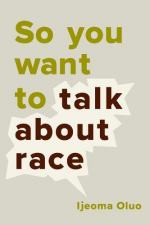
|
| Name: _________________________ | Period: ___________________ |
This quiz consists of 5 multiple choice and 5 short answer questions through Chapter 3: What if I Talk About Race Wrong? - Chapter 6: Is Police Brutality Really About Race?.
Multiple Choice Questions
1. In the context of social justice, which term means "an advantage or set of advantages you have that others do not" (53)?
(a) Intersectionality.
(b) Appropriation.
(c) Tone policing.
(d) Privilege.
2. In Chapter 2: What is Racism?, Oluo discusses a coworker who posted a meme suggesting that recipients of welfare be forced to take what action before receiving benefits?
(a) Prove that they are looking for employment.
(b) Prove that they are United States citizens.
(c) Prove that they have been sterilized.
(d) Prove their sobriety by passing a drug test.
3. What is NOT a quality Oluo attributes to the main people racism was created to benefit?
(a) Educated.
(b) White.
(c) Male.
(d) Rich.
4. What element does Oluo name as the only tool people of color often have when they are faced with police brutality?
(a) Visible marks indicating abuse.
(b) Witnesses.
(c) The court system.
(d) Their own account of events.
5. How does Oluo describe the identities of the men who approached Oluo's picnicking group in the Seattle park?
(a) Trans.
(b) Latinx.
(c) Black.
(d) White.
Short Answer Questions
1. What platform did Oluo use to denounce a particular city's choice to host a concert by a particular hip-hop artist?
2. How does Oluo describe her mother's identity?
3. How many lines of traffic did the policeman cross in order to pull Oluo over in 2015?
4. Oluo describes the trajectory of her career in what field?
5. What does Oluo name as the most crucial element in the fight for social justice and equality?
|
This section contains 243 words (approx. 1 page at 300 words per page) |

|




